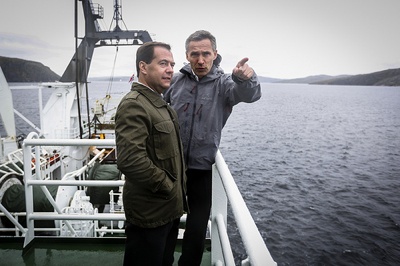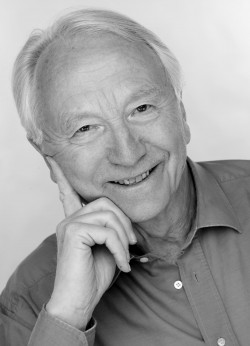As world leaders gathered in The Hague and Brussels this week to discuss security and politics, the first chief executive of Statoil is warning about both in Norway’s territorial waters in the Arctic. “The farther north you get, the more political it gets,” warned Arve Johnsen, who urges even more German involvement in new licensing deals to offset that of Russia.

Relations between Norway and Russia have clearly chilled since Russian President Vladimir Putin sent troops into Ukraine’s Crimean peninsula and then simply took it over, in an annexation that has been condemned by the US, EU leaders and, not least, German Chancellor Angela Merkel. Newspaper Aftenposten reports, though, that commercial cooperation between Norway and Russia in the Barents Sea continues to blossom, with new deals struck between Norway’s Statoil and Russia’s Rosneft on both sides of the so-called delelinjen, the border in the Barents that was agreed between Norway and Russia in 2010. It took effect the year after.
Johnsen, now age 80, worries that Russia can still become a rival over resources in the far north, called nordområdene in Norwegian. Norway’s government ministry in charge of oil and energy will be handing out more oil and gas exploration licenses this year in areas that once were a source of conflict between Norway and Russia. The time for defining the climate for future cooperation in the Arctic is now, Johnsen told Aftenposten, even though both countries came to terms over the border in the Barents during the last government led by former Prime Minister Jens Stoltenberg, now tipped as the next secretary general of NATO.
Serious concerns also have been voiced in Northern Norway over the past week, after Putin’s intervention in Ukraine. US officials have called it a “land grab” and Norwegian officials are going along with economic sanctions against Russia over its expansion, calling it a violation of international law. Since Norway shares a border with Russia in Finnmark as well, and territory on Svalbard, some now wonder how the Russians will behave there if they suddenly perceive their interests as threatened.

“Norway is not strong enough to stand alone against Russia in any conflict over resources,” Johnsen told newspaper Aftenposten. He advocates stronger connections between Norway and Germany in the area, and more involvement by German companies. Johnsen, who headed Statoil from its incorporation in 1972 until he was forced to resign in 1988 following cost overruns at the Mongstad plant, thinks more German partnerships will strengthen Norway’s position in the Barents Sea.
“Germany is the most important customer for gas from Norwegian fields, and a big customer of gas from Russia,” Johnsen said. “Today we see that Germany has the same pragmatic approach to Russia that we have, and they’re interested in the Arctic.
“I think that for Norway, it will be very important to have Germany with us as the power it is, because we’re a small country with a big neighbour.”
Johnsen played a key role in laying the groundwork for international cooperation in the Barents, an assignment he got from Norway’s former foreign minister, Jonas Gahr Støre. Now he has written a report for the Willy Brandt Foundation, which also aims to strengthen relations between Norway and Germany and bears the name of the German political refugee who came to Norway in the 1930s, married a Norwegian and later became German chancellor after World War II.
Norwegian and Russian companies must continue to cooperate on oil and gas activity in the Barents, Johnsen stressed, and he hopes more German firms will take shares of new blocs and licenses. There already are several large German companies among the 40 that have shown interest in the 23rd concession round this year.
“Those companies that win concessions will in reality decide who will have commercial responsibility to exploit the resources,” Johnsen said. “Lots of questions will arise, like where the oil and gas will be brought to land, and whether Norwegian pipelines will be used.
“This is all about the development of the northern areas, and enormous values are at stake.”
newsinenglish.no/Nina Berglund

